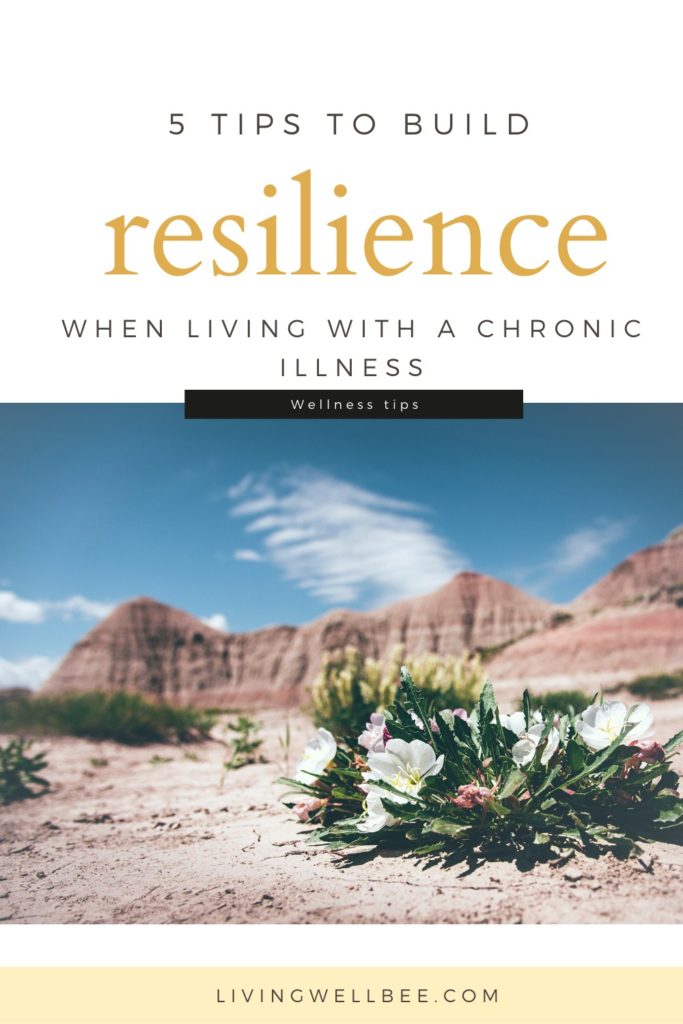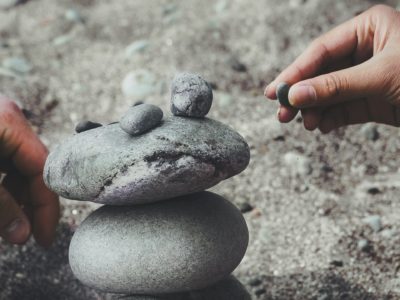It’s not only physical health that takes a toll when living with a chronic disease, right?
Although the nature of the disease is physical, the impact it has on our mental state and lives is quite significant. However, the impact of our mental state on disease management is also crucial. Our physical, emotional, cognitive, psychological and spiritual states are tightly interconnected. While it is essential to work to ensure good physical health, it is also important to build resilience to manage a chronic health condition and support the path to recovery. Studies have shown that resilience influences the progression of illness and outcomes of health.
But what’s resilience?
Simply put, resilience is nothing but the ability to effectively adapt your responses to adversity, which includes chronic diseases, as well as to scenarios that can enhance the stress related to this condition. Resilience equips people with the emotional capacity to deal with trauma, adversity, and hardship.
But don’t get me wrong, resilience is not about acting happy all the time, or ignoring the very real difficulties in life. Neither is it about discarding all your negative feelings and emotions. Instead, it is the exact opposite: resilience, according to researchers requires “positive adaptation.” That is, it is the ability to formulate ideas that can help us cope with reality while simultaneously being optimistic about the future. It requires us to continue moving ahead even when we encounter challenging events and requires adequate courage.
The greatest glory in living lies not in never falling, but in rising every time we fall
Nelson Mandela
It is important to note you cannot be resilient continuously. The experience of fostering qualities associated with resilience is very subjective and intricate. A person going through such an experience may require internal and external assistance to develop resilience, in the form of strength and resources, respectively. Undoubtedly, each person copes with trauma and challenges in a different manner. However, a few specific factors can go a long way in developing resilience, since they enhance the skills of coping as well as adaptability. In this article, I will highlight five different tactics I use to strengthen my mental fortitude.
Adapt
Firstly, you must allow yourself just to let go and accept that you have limitations. On some days, the optimal way in which you can cope with a chronic illness is by giving yourself a break from activities which you consider to be mandatory in either your personal or professional life. Secondly, focus on your strengths. Typically, our brains tend to pay attention to whatever went wrong and amplify the negative emotions until they begin to occupy other aspects of our lives, which is commonly referred to as negative bias. This challenge can be mitigated by collating a list of the various things you cannot do because of your illness and juxtapose it with ways in which you can evade these restrictions. The objective of this step is to help you regain some element of control and thereby, it can help you in becoming more hopeful. For example, if chopping vegetables is challenging, opt for buying precut vegetables at the store or seek the help of your partner or friends with this chore.
Connect
According to research, resilience in a person is fostered by social systems that offer support during challenging times. Moreover, studies have also deduced that depression can be reduced through social support, which can also assist in coping with stress, thereby bettering a person’s physical and psychological health. In supportive relationships, people find it easier to talk about their problems. Friends, immediate and extended family, social circles, and other entities can provide social support. Resilience can also be built through the support offered by community support groups, including online. You may identify untapped resilience in yourself through mutual understanding and experiences sharing.
Practice gratitude
Gratitude-based practices can help in rewiring our brains to become more positive and resilient. In fact, building upon a positive mindset will give you the strongest foundations on which your body can advance the process of recovery. Studies have shown that those who harness optimism and encouragement for the future, experience less pain than those who do not. Gratitude is a constant practice, we need 5 positive interactions to offset every one negative interaction, so be express appreciation and kindness as often as possible to your family, friends and colleagues, being affectionate and making eye contact.
Check this Youtube video with an experiment on expressing gratitude to see how impactful it can be
If you have 15 min to spare, try this easy experiment and assess how you feel afterwards.
- Identify about 3 things/people/circumstances that you are thankful for that day.
- Make 3 positive self-talk comments about yourself and/or gifts (example: I did a great job at meal prepping my meals for the week to ensure I eat healthily)
- Identify 1 thing you can do to have more joy in the next day.
You can engage in this before you sleep, which will help you retrospect about the day and identify the good parts, helping you sleep better. You can even do this before your day starts, to set a positive tone for the entire day and mitigate any type of anticipatory stress. I find it helpful to write it down. You can find more tips and tool here.
Foster wellness
This is another very important point. It is appalling to me that people still do not relate eating habits to their resilience. Resilience is not fostered by merely altering your internal aspects, such as mindset. External resources, such as the food you eat, also play an important role. Therefore, adhering to a positive lifestyle, such as adopting a diet that fulfils your nutritional needs and developing appropriate sleep routines, and bidding adieu to a sedentary way of living, can play a crucial role in helping your body cope with stress and mitigate the impact of emotions such as anxiety or depression. Moreover, the consumption of unhealthy food frequently can add to the stress experienced by your body, deteriorating your condition. Stress can cause your body to reach an inflammatory state. This is not only unhealthy but can also foster chronic diseases if prolonged. If your body is offered adequate nutrients even during stressful times, the physical symptoms of stress may not manifest themselves and your body has enough strength to cope with the trauma.
Self-reflection
Self-reflection can be a challenging but an invaluable step to move forward. Identifying our feelings allows us to be more connected with both ourselves and others, improving individual mental wellness and helping develop attachments with our inner-circle. I found that daily journaling practices helped me to become more self-aware, learn from my experiences, and be open to adapt. It’s such a mindful exercise. A simple practice is to write freely and continuously for 20 minutes, capturing an event or experience and describe your reaction, your deepest thoughts and feelings around it. Then note the lessons you might get from it, being constructive to yourself. Interestingly, journaling can also be useful when it comes to managing pain. When we are in pain, it poses a threat to our survival. Hence, we tend to become hyper-focused on painful stimuli – we can become anxious about future pain, we may interpret something as painful by expecting pain, and we may start avoiding situations where pain might occur. As neural circuits of pain are repeated, they grow stronger. However, according to studies, diverting our attention helps in subsiding the pain intensity. If a journal is used frequently, it can assist us in diverting ourselves away from pain, even if it is momentarily. By continuing journaling, you will learn to make this shift gradually, which improves the symptoms of pain. You may have to try a few tools before you will be able to recognise what works best for you to journaling. I use my Ipad as my digital journal but I found these helpful tools and resources.




 5 things I have learned by living with an autoimmune disease
5 things I have learned by living with an autoimmune disease
Leave a Reply